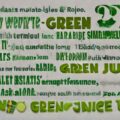Anemia, fatigue, and poor concentration are just a few signs that you might be running low on iron—a mineral critical for your body’s functioning. As an Registered Dietitian (RD), I often encounter patients who are unaware of the importance of maintaining adequate iron levels. In this article, we’ll explore the reasons why you might need an iron supplement and the benefits it can bring to your health and wellness.
Understanding Iron’s Role in Your Body
Iron is a vital component of hemoglobin, the protein in red blood cells that carries oxygen throughout your body. Without sufficient iron, your body can’t produce enough healthy red blood cells, leading to iron deficiency anemia. Symptoms include fatigue, weakness, and shortness of breath.
Signs You Might Be Iron Deficient
- Fatigue and weakness
- Pale skin and dark circles under the eyes
- Brittle nails and hair loss
- Shortness of breath during exercise
- Craving for non-food substances (pica)
Who Needs an Iron Supplement?
Certain groups of people are more at risk of iron deficiency and may benefit from supplements. This includes menstruating women, pregnant women, infants and children, vegetarians and vegans, frequent blood donors, and individuals with certain health conditions like celiac disease or gastrointestinal disorders that affect nutrient absorption.
Choosing the Right Iron Supplement
Iron supplements come in various forms, including ferrous and ferric iron salts, and chelated iron. Ferrous sulfate is the most common and well-absorbed form, but it may cause gastrointestinal side effects. A healthcare provider can help determine the right type of supplement and dosage for your needs.
How to Take Iron Supplements Effectively
To increase the absorption of iron supplements, take them on an empty stomach or with a source of vitamin C. Avoid taking them with calcium-rich foods or beverages, as calcium can inhibit iron absorption.
FAQ
Can you take an iron supplement every day?
Yes, but the daily dosage should be determined by a healthcare provider to avoid iron overload, which can be harmful.
Are there natural sources of iron I can include in my diet?
Absolutely. Red meat, poultry, fish, beans, lentils, spinach, and fortified cereals are good sources of iron.
How do I know if I need an iron supplement?
If you’re experiencing symptoms of iron deficiency or fall into a high-risk group, consult with a healthcare provider for a blood test.
Can iron supplements interact with other medications?
Yes, iron supplements can interact with certain medications, including antacids and some antibiotics. Always inform your healthcare provider about any medications you’re taking.
Are there any side effects of taking iron supplements?
Common side effects include constipation, nausea, and stomach pain. Taking supplements with food can minimize these effects.







